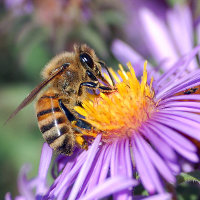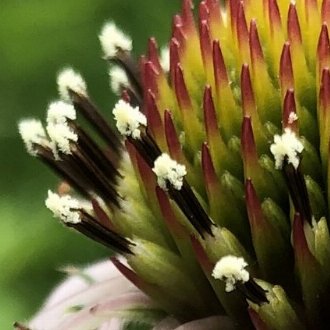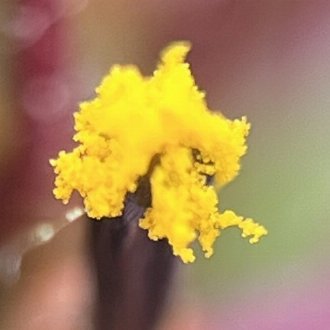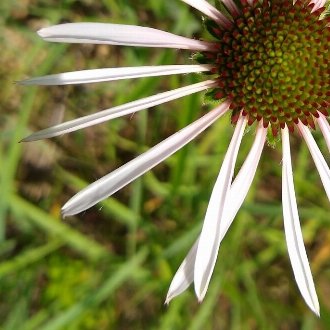Pale Purple Coneflower vs Wavyleaf Purple Coneflower
This guide is under construction and has not been published yet. It may have errors. When in doubt, double-check other sources for definitive ID.These two species are visually similar and easily confused. They can be distinguished by ray width, often by pollen color, and they have some other differences as well. E. pallida has a much broader range and is more common in most of its area of overlap. E. simulata has a more restricted range, but is present in a region of Kentucky where E. pallida is not.
Pale Purple Coneflower (Echinacea pallida) | Wavyleaf Purple Coneflower (Echinacea simulata) |
A purple coneflower most abundant in the central U.S., with a few isolated populations in the East. | |
Pollen is usually white, or when yellow, a paler shade of yellow. Photo © zancat, CC BY 4.0. | Pollen is yellow. Photo © Mark Pollock, CC BY 4.0. |
Rays are narrower (3-4mm) Photo © Dana Lee Ling, Public Domain. | Rays are wider (4-7mm) Photo © Mark Pollock, CC BY 4.0. |
References & External Resources
These short lists show only links helpful for ID. For a complete list of references and resources also covering other aspects of ecology, visit the links section of the full article on each plant, which is the first entry here.






